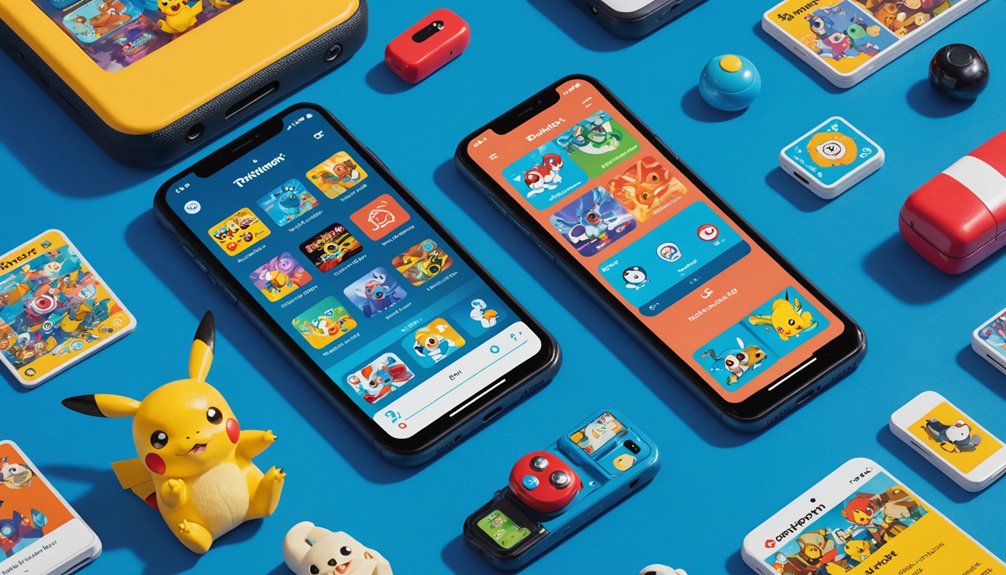ChatGPT makes keyword research dead simple. No subscriptions, no complicated tools—just ask and receive. It generates regular keywords, long-tail phrases, and semantic terms without the usual SEO headaches. Sure, it can’t tell you search volumes or competition metrics, but it’s a goldmine for content ideas. Paste competitor content, request niche sub-topics, or generate FAQs instantly. Traditional keyword tools look pretty fancy until you realize how much ChatGPT accomplishes with a single prompt.

While traditional keyword research tools can drain both your wallet and patience, ChatGPT offers a rejuvenating alternative that’s surprisingly effective. This AI powerhouse doesn’t just spit out random terms—it generates genuinely useful keyword ideas that can transform your content strategy.
No subscription fees. No complicated interfaces. Just straightforward keyword suggestions at your fingertips.
The process is ridiculously simple. Start with a seed keyword, ask ChatGPT to “Generate keywords for fitness equipment,” and watch the magic happen. Need something more specific? Request long-tail keywords with phrases like “Find 10 long-tail keywords for home workout equipment.” The AI delivers. It’s not rocket science, folks. Like successful affiliate marketers, focusing on a specific niche can help you develop more targeted and effective keywords.
ChatGPT also excels at finding those semantically related terms that Google absolutely adores. Ask for LSI keywords, and you’ll get terms that contextualize your content without keyword stuffing. Smart, right? Similar to Jasper.ai templates, ChatGPT can help generate diverse content variations for different marketing purposes.
Beyond basic keywords, ChatGPT uncovers the semantic goldmine that makes Google’s algorithm purr with satisfaction.
And when competitors have killer content ranking well, just paste portions into ChatGPT and ask it to extract the key terms. Sneaky but effective.
Questions drive traffic. Period. ChatGPT knows this and can generate lists of common questions people ask about your topic. These aren’t random guesses—they’re logically connected queries that actual humans type into search engines. Gold for FAQ sections and content planning.
Let’s be real, though. ChatGPT has limitations. It won’t tell you search volumes or competition metrics. It doesn’t know if a keyword is trending right now. For that data, you’ll still need traditional tools.
Consider ChatGPT your idea generator, not your complete keyword research solution.
The casual brilliance of ChatGPT is how it democratizes keyword research. No marketing degree required. No expensive software needed. Just you, an AI, and straightforward prompts like “What are popular sub-topics related to digital photography?” or “List without description the top keywords for coffee brewing.” You can easily organize these generated keywords by Excel categorization for different advertising platforms like Google Ads and Facebook Ads.
It’s keyword research for the masses. And it works. For maximum effectiveness, try combining ChatGPT with traditional keyword research tools to get both creative ideas and concrete metrics.
Frequently Asked Questions
How Accurate Is Chatgpt Compared to Paid Keyword Research Tools?
ChatGPT isn’t as accurate as paid keyword research tools. Period.
With a knowledge cutoff of 2021, it’s missing recent trends that paid tools track in real-time. Its accuracy hovers around 88.7% for some tasks, but keyword research? Not so much.
Paid tools like Semrush provide current data and deeper analytics. ChatGPT depends entirely on your prompts.
Makes a decent brainstorming buddy though. Just don’t expect it to replace the real deal.
Can Chatgpt Analyze Competitor Keywords Effectively?
ChatGPT can analyze competitor keywords, but with serious limitations.
It can extract keywords from pasted content but can’t show actual rankings or search volumes. Not automated. Labor-intensive.
Compare that to Ahrefs or Semrush? No contest.
For basic insights, sure. Copy text, ask for keywords, get a list.
But for serious SEO work? Tools like Google Keyword Planner, Moz, or SpyFu are necessary companions.
ChatGPT’s just one piece of a larger puzzle.
How Often Should I Update Keywords Researched With Chatgpt?
Keyword updates? It depends. Most experts recommend bi-monthly reviews at minimum.
But reality’s messier. Seasonal businesses need more frequent adjustments—maybe monthly during peak periods. Industry changes force updates too. No magical timeline exists.
Analytics tell the real story. Dropping traffic or conversions? Update immediately. Stable performance? Maybe quarterly is fine.
The digital landscape shifts constantly. Yesterday’s perfect keyword might be tomorrow’s dud. Update or get left behind. Simple as that.
Does Chatgpt Provide Search Volume Data for Keywords?
No, ChatGPT doesn’t provide search volume data for keywords. Period.
The AI has zero access to real-time search metrics from Google or other engines. It’s flying blind when it comes to numbers.
Users need actual keyword research tools for that stuff—Google Keyword Planner, Ahrefs, SEMrush.
ChatGPT’s good for brainstorming keyword ideas and content strategies, but for hard data? Look elsewhere.
The bot knows concepts, not current search volumes.
Can Chatgpt Identify Seasonal Keyword Trends?
ChatGPT can’t directly identify seasonal keyword trends. It lacks real-time data. Period.
What it can do? Analyze historical patterns and make educated guesses about seasonal topics. Not the same thing, obviously.
For actual seasonal keyword trends, you’ll need to pair ChatGPT with real-time tools like Google Trends.
The AI can interpret that data once you have it, but it’s flying blind on current search volumes and seasonal fluctuations.




